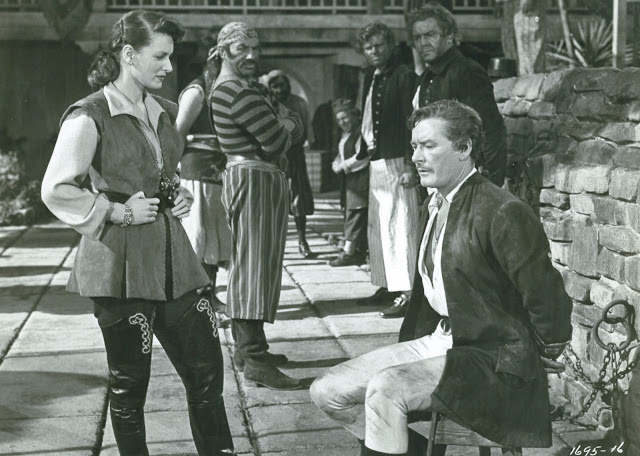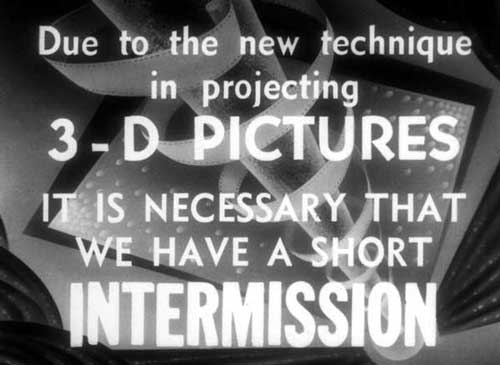The Lawless Takes Its Lumps --- Part TwoPine/Thomas and Paramount were well armed going into June 1950's pre-release of The Lawless. Reviews were mixed but mostly encouraging. Its heart is in the right place, said The New York Compass, despite The Lawless being not by any means polished. Critics liked the message even as the picture's path to greatness is obstructed (NY Post). The two Bills did hit a bull's-eye inducing big name columnist/commentator Drew Pearson to narrate their trailer for The Lawless. Pearson lent gravity to the enterprise worth a peck more than mere squibs from lesser lights, his the beacon millions of readers followed (Pearson is probably fan-known best today as the host/narrator of Fox's year later The Day The Earth Stood Still trailer). To further pitch the social-issue weight he was pulling, Bill Pine took Mexican-American carpenter-turned-actor Lalo Rios to visit church and women's groups in cities where The Lawless was set for pre-release dates. |
| Showmen Pushed for Trade Screenings as Part Of Their War Against Blind Bidding, But Many Ignored the Screenings Once They Were Implemented |
Paramount's deal with eight venues getting first (and exclusive) play on The Lawless called for each to run it as a single --- no combos or supporting features. Several among these must have got cold feet, as the bargain was not kept. What became clear was fact that June's were do-or-die engagements. If Paramountwas going to stay behind The Lawless, the film would have to break out here and earn sleeper status insiders had predicted. Ominous was thoughtful pics lately getting a black eye at ticket windows. Whatever vogue they'd had was in a 40's past. Barney Balaban sounded off at a mid-June confab of Paramountsales staff where belt-tightening was Topic A, and there'll be no more arty, critically praised productions that are a thing of beauty but with few customers, he added. Had Barney just come off inspection of low receipts for The Lawless? |
| British Theatres played The Lawless Under This Different Title |
 |
Pre-Release Site Boston Goes With The
Time-Honored Sandwich Board Bally |
Pine/Thomas were still bullish, predicting, said Variety, an eventual net profit of at least $1,000,000. They even pledged ten percent of Lawless profits to Paramount branch managers, salesmen, bookers, and field exploiteers, a 240-odd group of beneficiaries --- and they'd get quarterly statements with their checks for as long as they stayed on staff! A balloon this inflated had to be popped, and word from the pre-release did just that. The Lawless pulled a first week's "great" $15K in San Francisco, maybe due to its nearby story setting, but biz elsewhere didn't come near their haul. Buffalo was "fair" ($9,000) ... at least The Lawless played a single there, but Boston, Baltimore, and Detroit took the bobsled. These broke faith with Paramount by adding co-features: a Gene Autry here, a Roy Rogers there, or worse, a "B" out of Monogram, Father Makes Good --- each was fine in and of itself, but this was notcompany Para sales wanted its prestige pic to keep.
 |
| Kids, Cherry Coke, and The Latest Pine/Thomas Slugfest --- As Close To Sure-Fire As Theatres Could Get in 1950 --- Until The Lawless Came To Town |
 |
| Yes, The Lawless Was On Broadway, But It Didn't Gross There |
Even hope of a click in Gothamwas dashed, The Lawless opening there in late June at the 1,300 seat Astor Theatre. Very slow was their two weeks play-off, $12K in a first, $8K for the second. What biz The Lawless drew was attributed to a July 4 holiday boost. Variety's nationwide tally for June called Paramount's effort extremely spotty to date. Further tie-ins with schools and civic groups weren't helping, as screenings followed by egghead discussion was like anchors tied to mass patronage. Paramountseemed ready to pull plugs on that big push they'd pledged, and who could blame them? There was surer cash in ongoing juggernaut Samson and Delilah and My Friend Irma Goes West, Para's two other July centerpieces, and both hits. Autumn months saw The Lawless playing as a second feature to safer bets like Broken Arrow and, in Chicago, even Pine/Thomas' own Tripoli. At least Omahatried helping with popular orchestra man Blue Barron and his stage revue --- light receipts here were attributed less to The Lawless than sport events on TV that siphoned off matinee trade.


It was small towns that really ripped The Lawless. Was this cowboys, a melodrama, or what the hell? They'd take their genres straight, thank you. Used instead of a western --- sorry I did, came word from Paynesville, Minnesota, Plenty of action, but my farmers and cowboys want a western. Robert H. Perkins of the Lynn Theatrein Woodbine, Kentuckyput rhetorical spin to his comment ... It's another of those "lesson" films. Maybe your customers go for them. "Woody" at the Palace Theatre in Golden City, Missouri seems to have missed Pine/Thomas' point altogether: A messed-up try at a super western. Very poor draw in a theatre that thrives on westerns. The Motion Picture Herald maintained a weekly chart where independent film buyers rated movies. They were honest, sometimes brutal, and gave The Lawless an acid bath --- none called it Excellent, two said Above Average, seventeen went with Average, thirty-seven Below Average, and twenty-three Poor.
 |
| You Can't Keep This Good Man Down --- Bill Thomas, Second From Left, Drives His Lawless Festooned Pick-Up To Visit Ronald Reagan (left), Bruce Bennet (right), and Honored Location Guest Dan Garvey, Governor Of Arizona. The Pic They're Shooting Is The Last Outpost |

Bill Pine was philosophical by a scorched November. He told Variety that The Lawless might have been more successful if released a year earlier, when much of the public "was actually going to see message films." Bill added that he and his partner were still glad they made The Lawless because it was the first time they'd done "a real critic's picture." Admitting it wasn't as profitable as their others, Pine and Thomas at least "proved we're guys whose only interest isn't making money." As to afterlife of The Lawless, there was 1960 syndicated-to-TV release amongst a group of twenty-two Pine/Thomas post-48's, most in color. I found no indication of The Lawless being shunned by programmers. Indeed, there are listings in a number of vintage TV GUIDES I've come across. What we haven'thad is wide exposure on satellite and cable carriers, but that seems to have been the case with most Pine/Thomas titles (some of them are streaming on Netflix, however). My query: Does Paramount own all of these at present or doP/T heirs still maintain a controlling interest?
















































